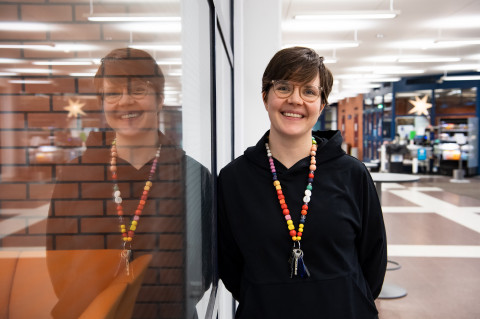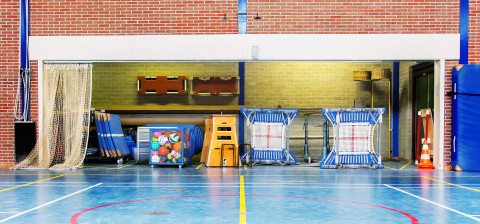The coronavirus pandemic has caused drastic changes to the everyday life of Finns, and many are also feeling lonely. At the same time, feelings of loneliness vary according to one’s situation in life.
According to a report by the National Institute for Health and Welfare, the pandemic has increased feelings of loneliness in approximately 25% of working-age Finns. Earlier studies show that feelings of loneliness are strongly linked to time and place. In addition, various turning points in life can also make one susceptible to loneliness.
“The coronavirus pandemic has changed people’s everyday life like nothing else before. The exceptional situation caused by the pandemic has increased feelings of loneliness in some people, but not in all,” Assistant Professor Elisa Tiilikainen says.
So far, there is no clear evidence supporting the claim that the pandemic would have increased feelings of loneliness at the population level. Instead, it seems that feelings of loneliness vary according to people’s situation in life.
Feelings of loneliness vary according to one’s situation life.
“It looks like loneliness has become more common in those individuals or families who face challenges in their everyday life, as well as in those for whom face-to-face encounters with people in the workplace are important, but now missing entirely. In addition, people who have been feeling lonely already before the pandemic may now feel even lonelier because of social distancing and isolation.”
Tiilikainen points out that the pandemic may have normalised feelings of loneliness and made them more acceptable now that loneliness and social distancing are something that concern people in different life situations more than before.
“Perhaps loneliness is now associated with less shame, and it is easier for people say that they are feeling lonely. At least this is what I hope, since loneliness is a very normal experience both during the pandemic and at other times, too.”

Trust reduces feelings of loneliness
Tiilikainen has studied Finns’ loneliness from the viewpoint of life course, among other things. Currently, she is involved in an international research project that analyses people’s feelings of loneliness, isolation and coping during the coronavirus pandemic in nearly 20 different countries. The first results from the study can be expected in early 2021. More than 18,000 people over 18 years of age from all across the world have participated in the study.
“It will be interesting to see how people have described their feelings of loneliness and how the pandemic has influenced their social relations.”
In an international study, it is also possible to compare how social trust is reflected on feelings of loneliness.
“From other studies, we know that the greater the citizens’ institutional trust, the less lonely they feel. It is interesting to see whether trust in the activities of the government and various authorities, and in safeguarding services and care during the pandemic, will manifest itself as less feelings of loneliness.”

Social networks and support networks are important
Different social networks and support networks play a crucial role in people’s feelings of loneliness. Many older people may feel increasingly lonely after their hobbies were put on a break last spring, leading to less contact with people in their everyday life.
“For some, home has been a lonely place to begin with.”
Tiilikainen is also concerned about the situation of family caregivers, many of whom are worried about their own health, in addition to that of the person they are caring for. They are also worried about their own coping, since supporting services have been unavailable for quite some time now.
“We are hearing from associations dedicated to family caregiving that the pandemic has put family caregivers under a lot of pressure.”
Various surveys also show that the pandemic has increased feelings of loneliness among students. Loneliness among young adults was common already before the pandemic. For many, studying has been an opportunity to feel like they belong to a group. Due to the pandemic, however, more and more courses are organised online, even for first-year students. Yet, the first year is crucial for students in order for them to make friends and to become attached to their peer groups and campus cities.
“On the other hand, it has been interesting to see how some students enjoy distance learning and not having to leave the capital region to study elsewhere, for example. Here, too, it matters what kind of support networks students have in their own town or city.”

Live stream hiking and online coffee – the coronavirus pandemic has led to new ways of doing things
When interviewing people for her study, Tiilikainen noticed that during the pandemic, spending time outdoors and in nature has also been an importance resource for older people. She is concerned about older people who follow social distancing recommendations to the letter and are now effectively locked in their homes.
“Spending time outdoors hasn’t been prohibited at any point. It is always good to highlight the fact that it is allowed to leave the house and spend time outside. Moreover, it is important to stay in touch with existing social contacts, and there are many ways to do that. Older people have also found new ways to keep in touch, for example by using Whatsapp. Younger people, too, have gotten creative and are now staying in touch by organising online parties, for example.”
Feelings of loneliness vary according to one’s situation life.
Elisa Tiilikainen
Senior Researcher
Master’s degree students writing their thesis, on the other hand, are meeting regularly for online coffee. What’s more, congregations have organised live streamed excursions to forests, allowing older people to come along from their homes. According to Tiilikainen, these new ways of spending time together have helped people in different age groups to cope with the pandemic.
“I would very much like to see that these practices remain in use even after the pandemic is over some day. We have plenty of organised activities here in Finland, but whether these are accessible to all, is a whole another question.”
In this sense, the pandemic has been a wake-up call, inspiring various actors to think about how to make their activities available to all. With all things digital, it is good to keep in mind that those in the most difficult circumstances don’t have the resources to participate in online activities.
“We need also other kinds of activities to supplement the digital offering. However, I do think that staying in touch online is a good practice that should be utilised alongside more traditional activities.”

